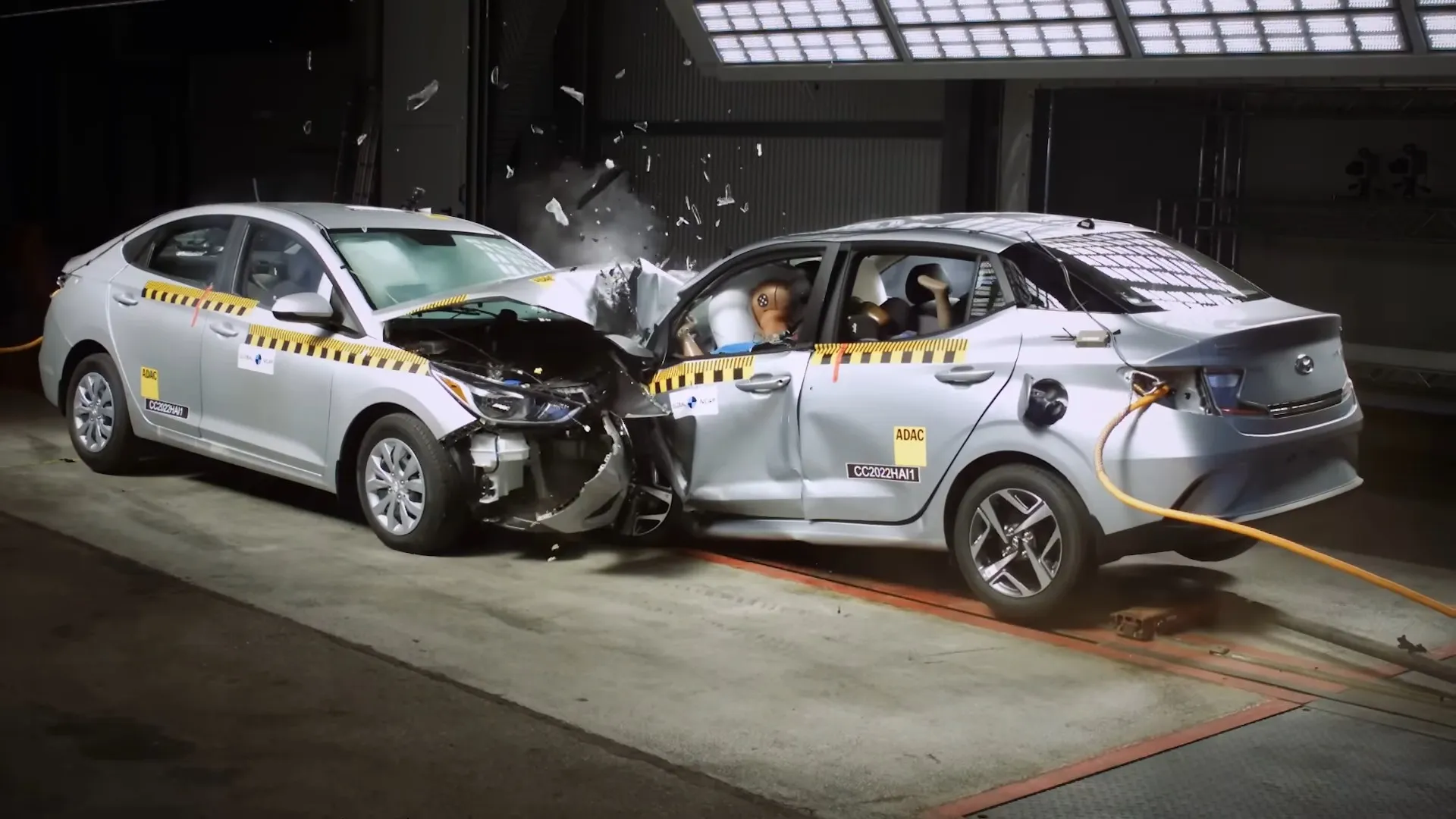UL 1703 Module Crashworthiness Testing
The UL 1703 module crashworthiness testing is a critical procedure ensuring that electrical and electronic components can withstand the rigors of vehicular accidents. This stringent test evaluates the safety performance of modules within electric vehicles (EVs) under simulated collision scenarios, which are designed to mimic real-world conditions. The primary objective of this testing is to ensure compliance with UL 1703, an international standard that sets forth specific criteria for electrical and electronic components used in EVs.
UL 1703 module crashworthiness testing involves subjecting the modules to controlled impact forces at various angles. The apparatus used for these tests includes sophisticated crash test rigs capable of simulating different types of collisions, such as frontal, side, or rear impacts. These rigs are equipped with sensors that measure displacement, acceleration, and force during the impact, providing critical data on how well the module performs under stress.
The testing process typically involves several stages: specimen preparation, initial inspection, loading into the crash test rig, conducting the impact tests, and final analysis. Specimen preparation is crucial as it ensures that the module being tested is in optimal condition before undergoing any stress. Initial inspections verify the integrity of the components prior to the test.
The test itself involves carefully positioning the module within a controlled environment and subjecting it to pre-determined impact forces. The apparatus used for this purpose includes hydraulic systems capable of replicating real-world collision scenarios. Post-impact, detailed analysis is conducted using advanced software tools that interpret sensor data from the rig.
The acceptance criteria for UL 1703 module crashworthiness testing are stringent and designed to ensure that modules can withstand significant impacts without compromising safety. Compliance with these standards not only enhances passenger safety but also builds consumer confidence in EV technology. The results of this testing play a pivotal role in the development process, helping manufacturers identify areas for improvement and ensuring their products meet regulatory requirements.
Given the complexity of modern electric vehicles, UL 1703 module crashworthiness testing is an indispensable part of the quality assurance process. By adhering to these stringent tests, automotive manufacturers can ensure that every component meets the highest safety standards, contributing to a safer driving experience and reducing potential risks associated with electrical failures during accidents.
Industry Applications
| Application Area | Description |
|---|---|
| Electrical and Electronic Components Testing | This application evaluates the performance of modules under simulated collision scenarios, ensuring they meet UL 1703 standards. |
| EV Safety Enhancement | Testing helps identify weak points in design that could lead to safety issues during accidents. |
| R&D and Innovation Support | It aids research teams in developing safer, more resilient components for future vehicle designs. |
| Regulatory Compliance | Ensures that electrical and electronic components used in EVs meet global regulatory requirements. |
| Supplier Evaluation | Aids automotive manufacturers in assessing the reliability of their suppliers’ products. |
| Premium Vehicle Design | Supports the creation of premium vehicles that meet stringent safety standards and consumer expectations. |
| Insurance and Safety Research | Provides data for research into vehicle safety, contributing to safer driving environments and insurance policies. |
Eurolab Advantages
Eurolab's expertise in UL 1703 module crashworthiness testing sets us apart as a leader in automotive testing. Our state-of-the-art facilities and experienced team ensure that every test is conducted with precision and rigor, providing reliable results that are crucial for product development. We offer comprehensive services from initial specimen preparation to detailed final analysis.
Our commitment to excellence extends beyond just meeting the standards; we strive to exceed them by incorporating cutting-edge technology and methodologies into our testing processes. This ensures that our clients receive accurate, consistent, and actionable results. Our experienced team of engineers and technicians is dedicated to providing expert guidance throughout the entire testing process.
With Eurolab's UL 1703 module crashworthiness testing services, automotive manufacturers can trust in receiving unbiased, independent test results that are critical for regulatory compliance. Our rigorous testing procedures help identify potential weaknesses early in the development cycle, allowing for timely corrections and improvements. This not only enhances product safety but also contributes to a more efficient and cost-effective development process.
Our facilities and expertise allow us to provide tailored solutions that meet the unique needs of our clients. Whether you're looking to enhance your vehicle's crashworthiness or ensure compliance with international standards, Eurolab offers the resources and knowledge to support your testing requirements.
Environmental and Sustainability Contributions
Incorporating UL 1703 module crashworthiness testing into vehicle development plays a vital role in enhancing both safety and sustainability. By ensuring that electrical and electronic components can withstand severe impacts, we contribute to the overall safety of vehicles on the road. This reduces the risk of electrical failures during accidents, which could lead to further damage or hazards.
Moreover, UL 1703 testing contributes to environmental sustainability by promoting the development of safer and more reliable components for electric vehicles. The stringent standards set forth in this testing ensure that these components are robust enough to operate efficiently even under extreme conditions. This not only enhances passenger safety but also supports the growth of eco-friendly transportation solutions.
By supporting the creation of safer, more resilient electrical and electronic components, UL 1703 testing helps reduce waste associated with product failures and encourages the use of sustainable materials in manufacturing processes. It promotes a culture of continuous improvement within the automotive industry, driving innovation towards greener technologies.
The results of this testing are crucial for manufacturers to make informed decisions that balance safety, performance, and environmental impact. By adhering to these standards, we contribute to a future where electric vehicles not only meet but exceed global safety expectations while minimizing their ecological footprint.





